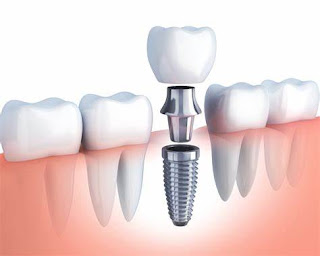Taking a lot of medicines and tonics to treat various disorders or psychological illness may also harm your health. The interaction of many organic and chemical compounds present in the medications you intake is powerful to compromise your dental health as well.
Whether it is over the counter drugs or a prescribed one, herbal medicine or other, overexposure of those medications to your mouth stimulates various oral health disorders.
Medication side effects on dental health
The drug-drug interaction aggravates the tissues inside the mouth that leads to the following issues:
• Cavities
• Dry mouth
• Taste altering
• Teeth and gum discoloration
• Abnormal bleeding
• Gum inflammation
• Oral Thrush
You can prefer an alternative to those medications but should not stop the treatment. Hence our Dentists have shared some prevention tips to get rid of the side effects.
1) Cavities
Most of the liquid medications are sweetened with sugar to make it easier to ingest. This is commonly found in tonics given to children, cough drops, antacids, and other chewable tablets. The sugar present in these fluids deposits on the teeth surface.
Prevention Tips
• Take the drugs during mealtime
• Don't consume the tonics before going to bed
• Consult your Doctor to replace tonics with medicines
• Gargle your mouth with water after consuming tonics
2) Dry Mouth
Dry mouth (or) Xerostomia is a common dental problem and it might be occurred due to medication. This is because the chemical substances in some medicines are powerful to absorb the saliva and leave our mouth dry. The shortness of saliva or reduced salivary flow can lead to various oral problems like cavities, Burning Mouth Syndrome (BMS), etc.
This is commonly caused by anti-anxiety medications, narcotic painkillers, asthma inhalers, antihistamines, muscle relaxants, diuretics, decongestants, anticonvulsants, and antidepressants.
Prevention Tips
• Drink more water
• Chew sugarless chewing gums
• Avoid acidic, salty and spicy foods
• Limit the intake of beverages like tea, coffee.
• Reduce smoking and alcohol consumption
3) Teeth and Gum Discoloration
The chemical compounds in medications that are prescribed to treat acne and allergies have teeth staining agents. Long term intake of those medications deposits a black colored pigmentation over the teeth and gums.
Prevention Tips
• Consult your doctor to get a replacement for such medicine or drug.
• Otherwise, visit a dentist to get cosmetic dentistry treatments like teeth whitening and gum whitening.
4) Abnormal Bleeding
Medicines like aspirin and anticoagulants that are recommended to treat heart diseases and stroke are blood thinners. Regular intake of those medications alters the actions of blood cells and palettes to clot the blood while bleeding. This will turn out to be a serious problem when you need oral surgical procedures like fixing dental implants, gum flap surgery, and others.
5) Abnormal taste
Antibiotics, nicotine patches to stop smoking, drugs to treat heart problems and some respiratory inhalants are powerful to alter the taste we sense. They make the people who intake these drugs to sense bitter or metallic taste in their mouth.
6) Soft-tissue reactions
As mentioned earlier, the organic or chemical compounds aggregate the soft tissues that lead to some discomforts. For instance, mouth sores, tissue discoloration, swelling or inflammation in gums.
It is often possible with medications prescribed for blood pressure, anti-seizure medications, chemotherapy medications.
Prevention Tips
Such problems require appropriate oral care treatments to cure. Consult your Dentist to get rid of those dental discomforts.
7) Oral Thrush
Oral thrush is a condition that causes white patches or lesions over the tissues. It occurs because of the overgrowth of cells that leads to yeast infection inside the mouth. This primarily happens with the intake of medications taken after radiation therapy treatments like Chemotherapy.
Prevention Tips
• Get dental consultation to get antifungal and anti-thrush drugs.
• Prefer natural mouthwashes to swish your mouth.
Bottom line
The long term intake of certain medications will be problematic and causes havoc on our health. It can be treated or cured by adjusting the dose taken or changing them after discussed with your Doctor. We have explained the common dental problems that arise as a side effect of the intake of the medicine.
Are you suffering from those dental disorders? Book your appointment with us to get proper dental consultation.






